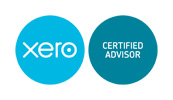IRD Compliance Focus
Each year IRD target a few specific issues relating to tax payer compliance, carrying out investigation and audit activities to recover unpaid tax and penalties.
For every $1 spent by Inland Revenue on compliance focus activities they are recovering approximately $8 from non-compliant tax payers.
In the next year they will receive a funding boost from the government to increase their compliance focus work, which is likely to increase the scope and frequency of IRD investigations and audits.
IRD have indicated that key areas which they will be targeting over the coming year include:
The Hidden Economy
This includes any illegal activities or income earned outside of tax system (i.e. “cashies”). The IRD have signalled they have recently had success prosecuting several industries that deal largely in cash, such as takeaway restaurants, beauty salons and builders.
With increased funding Inland Revenue will have greater resources to identify offenders and conduct more investigations into these types of businesses.
Property Investment
Previously, residential property sales were only regarded as taxable if it was the purchasers “intention” at the time the property was purchased to resell it for a profit.
However, with the introduction of the Bright Line legislation in October this year, IRD now have an objective test to supplement the intention test, to help determine whether the sale of a residential property is taxable.
Therefore, Inland Revenue are ramping up audit activity in this area to try and catch any property speculators who in the past have hidden their intentions to make tax-free gains on the sale of property.
GST Refunds
Inland Revenue will be focusing on tax payers who receive large GST refunds and those who receive GST refunds on an ongoing basis.
For large GST refunds they are likely to request documentation (such as copies of invoices and receipts) to verify the GST claim.
The risk with taxpayers who consistently receive GST refunds is that they may no longer be eligible to be GST registered and should therefore have deregistered for GST (e.g. if the business has ceased or it has slowed down so much that it is a “hobby” rather than a taxable activity).
For any clients who think they might be at risk of audit by the IRD, we urge you to make sure that you are declaring all of your income and complying with all relevant tax laws.
It is never too late to come clean to IRD, as up until an audit notification is received from them, taxpayers can make a voluntary disclosure of any mistakes or omissions from tax returns, which can significantly reduce the amount of penalties and interest Inland Revenue will charge on any underpaid tax.
If you are not sure you have met all of your tax obligations or have any questions about Inland Revenue’s compliance focus please contact our office.






